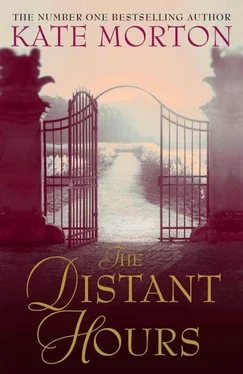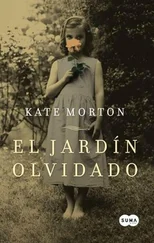‘Goya anticipated Freud by some time, in that respect.’
I smiled somewhat sickly, and then the fever hit my cheeks and I knew that I could stand the suspense, the subterfuge, no longer. I was not formed for games like these. If Percy Blythe knew what I had found in the muniment room, if she knew that I had taken it with me and that I was bound to investigate further; if this was all an elaborate ploy to have me admit to my deception, and for her to try, by whatever means she could, to prevent me from exposing her father’s lie, then I was ready. What was more, I was going to strike the first blow. ‘Miss Blythe,’ I said, ‘I found something yesterday. In the muniment room.’
A dreadful look came over her, a leaching of colour that was instant and absolute. As quickly as it had appeared she managed to conceal it again. She blinked. ‘Well? I’m afraid I’m not going to be able to guess, Miss Burchill. You’re going to have to tell me what it was.’
I reached into my jacket and retrieved the letter, tried to steady my fingers as I handed it to her. I watched as she dug reading glasses from her pocket, held them before her eyes and scanned the page. Time slowed interminably. She shifted her fingertips lightly over its surface. ‘Yes,’ she said, ‘I see.’ She seemed almost relieved, as if my discovery was not what she’d feared.
I waited for her to continue and when it was clear she had no intention of doing so, I said, ‘I’m rather worried – ’ it was, without doubt, the most difficult conversation I’d ever had to initiate. ‘If there’s any question, you see, that the Mud Man was – ’ I couldn’t bring myself to say ‘stolen’. ‘If there’s any chance at all that your father might have read it elsewhere first,’ I swallowed, the room was swimming a little before my eyes, ‘as this letter seems to suggest, the publishers will need to know.’
She was folding the letter very carefully and crisply, and only when she’d finished did she say, ‘Let me set your mind at ease, Miss Burchill. My father wrote every word of that book.’
‘But the letter – are you sure?’ I had made a huge mistake in telling her. What had I expected her to do? Speak honestly with me? Give me her blessing while I made enquiries that stood to strip her father of his literary credibility? It was natural, of course, for his daughter to support him, especially a daughter like Percy.
‘I am very sure, Miss Burchill,’ she said, meeting my gaze. ‘It was I who wrote that letter.’
‘ You wrote it?’
A curt nod.
‘But why? Why did you write such a thing?’ Especially if it was true that every word was his.
There was fresh colour in her cheeks and her eyes were bright, her energy much improved, almost as if she were feeding in some way on my confusion. Enjoying it. She looked at me slyly, a look to which I was becoming accustomed, a look that suggested she had something more to tell me than what I’d thought to ask. ‘There comes a time in the lives of all children, I expect, when the shutters are lifted and they become aware that their parents are not immune to the worst of human frailties. That they are not invincible. That sometimes they will do things to suit themselves, to feed their own monsters. We are a selfish species by nature, Miss Burchill.’
My thoughts were swimming in a deep and clouded soup. I wasn’t quite sure how one thing related to the other, but assumed it must have something to do with the distressing consequences that her letter had prophesied. ‘But the letter-’
‘That letter is nothing,’ she snapped, with a wave of her hand. ‘Not any more. It’s an irrelevance.’ She glanced at it briefly and her face seemed to flicker like a projection screen, a film running backwards across seventy-five years. In a single sudden motion she tossed it onto the fire, where it sizzled and burned and made her flinch. ‘As it happens, I was wrong. It was his story to tell.’ She smiled then, wryly, a little biliously. ‘Even if he didn’t know it at the time.’
I was utterly confused. How could he not know that it was his story, and how could she have thought it otherwise? It made no sense.
‘I knew a girl once, in the war.’ Percy Blythe had gone to sit on the chair behind her father’s desk and she leaned back into the chair’s arms as she continued: ‘She worked in the cabinet rooms; met Churchill a number of times in the corridors. There was a sign they had hanging, one that he’d put there. It said, “Please understand there is no depression in this house, and we are not interested in the possibilities of defeat. They do not exist.” ’ She sat for a moment, her chin lifted and her eyes slightly narrowed, her own words hanging still around her. Through the wash of smoke, with her neat haircut, her fine features, the silk blouse, she almost looked like she were back in the Second World War. ‘What do you think of that?’
I do not do well with these sorts of games; I never have, particularly riddles without even the most tenuous link to the rest of the conversation. I shifted my shoulders miserably.
‘Miss Burchill?’
A statistic came to me then, something I’d read or heard once about the way suicide rates plummet during times of war; people are too busy trying to survive to give much thought to how miserable they are. ‘I think wartime is different,’ I said, unable to avoid the rising tone that betrayed my discomfort. ‘I think the rules are different. I imagine depression is probably akin to defeat during war. Maybe that’s what Churchill meant.’
She nodded, a slow smile playing at her lips. She was making things difficult for me on purpose, and I didn’t understand why. I’d come to Kent at her behest, but she wouldn’t let me interview her sisters, she wouldn’t answer any of my questions directly, she preferred to play cat-and-mouse games in which I was cast always as the quarry. She might just as easily have let Adam Gilbert continue with the project. He’d done his interviews, he needn’t have bothered them again. You may take it as an indication of my profound discomfort and frustration that I said then, ‘Why did you ask me to come, Miss Blythe?’
A single scar-like brow shot up like an arrow. ‘What’s that?’
‘Judith Waterman from Pippin Books told me you rang. That you asked specifically for me.’
A twitch at the corner of her mouth and she looked straight at me; you don’t realize how rare that is until someone actually does it. Stares, unflinchingly, right down deep into your soul. ‘Sit,’ she said, just as you might instruct a dog or a disobedient child, and the word was so brittle in her mouth that this time I did not argue; I spotted the nearest chair and did precisely as I was told.
She tapped a cigarette on the desk, then lit it. She drew hard, eyeing me as she exhaled. ‘There’s something different about you,’ she said, resting her other wrist across her body, leaning back into the chair. All the better to appraise me.
‘I’m not sure what you mean.’
She squinted then, dissecting, watery eyes looking me up and down with an intensity that made me shiver. ‘Yes. You’re less chirpy than you were before. The last time you came.’
I couldn’t argue with that so I didn’t. ‘Yes,’ I said. My arms were threatening to flail around so I crossed them. ‘Sorry about that.’
‘Don’t be,’ said Percy, lifting her cigarette and her chin. ‘I like you better this way.’
Of course she did. And, happily, before I was faced with the impossibility of formulating a reply, she returned to my initial question: ‘I asked for you, in the first instance, because my sister wouldn’t tolerate an unknown man in the house.’
‘But Mr Gilbert had already finished his interviews. There was no need for him to come back to Milderhurst if Juniper didn’t like it.’
Читать дальше












